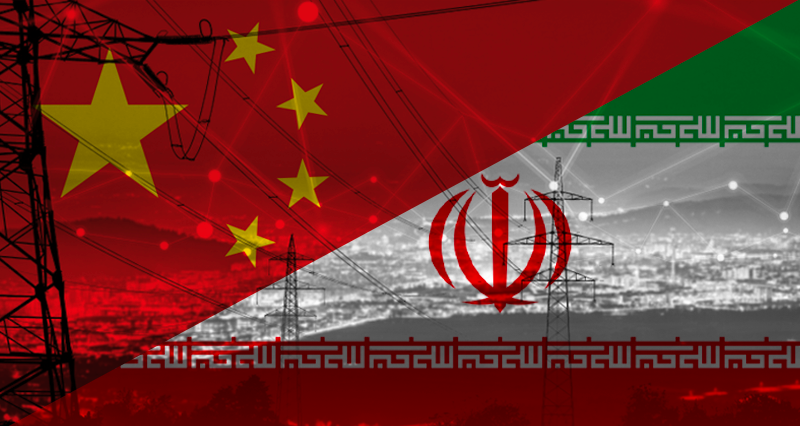Gulf states were the spearhead in efforts to overthrow the regime of President Bashar al-Assad following the outbreak of an uprising against it within the so-called Arab Spring revolutions in 2011. These states played the largest role in supporting opposition groups such as the Free Syrian Army with weapons and isolating the regime in the Arab world.
However, in the last two years, the tide has shifted towards re-dealing with the Assad regime for several motives, the most prominent of which is the growing conviction that the war in Syria has ended in favor of Assad.
In light of fears that the collapsed Syrian state will have negative effects on the stability of neighboring countries, some Gulf states see the necessity of re-normalization with Damascus in order to integrate the regime into its Arab world in order to avoid the existence of a failed state, especially in light of the growing Iranian influence there.
However, the Gulf states are divided on how to deal with this issue.
A leading Emirati position
The UAE was a pioneer in turning towards normalizing relations with the Assad regime. The change in the Emirati position is due to the common ground created by military cooperation with the Russians, who have been militarily present in Syria since 2015.
Abu Dhabi believed that Syria was turning into foreign spheres of influence at the expense of the Arabs, and that the solution is in accepting Assad as a prelude to reorienting Damascus away from various forms of foreign influence.
The UAE’s rejection of Islam’s political currents may have motivated it to distance itself from supporting Syrian opposition groups, mostly Islamists. This situation gave the UAE great flexibility to reset relations with Damascus.
Since its calculations were biased towards economic interests and excluded ideological aspects linking Damascus and Iran, as in other Gulf capitals, Abu Dhabi had the most urgent motives for restoring the relationship with the Syrian regime. Therefore, its normalization steps were quick and frequent, reaching the level of exchange of visits by officials of the two countries at the highest level.
Quiet Saudi move
As for Saudi Arabia, its hardline stances against Assad have receded with the arrival of Prince Muhammad bin Salman to the mandate of the Covenant.
The kingdom supported opponents of the regime and launched a major media war against it, and allocated large sums of money with the aim of overthrowing it, in a bet that this would succeed in limiting Iranian influence in the region. But what happened was exactly the opposite, which encouraged Riyadh to review its policies.
When Saudi Arabia saw that the situation in Syria portended chaos that threatened to divide it, and that this might spread to neighboring countries like an infection, its enthusiasm for bringing down the regime decreased.
At the Camp David summit held in May 2015, bin Salman sent positive messages that the kingdom’s problem is not with Damascus, but with Tehran.
Saudi hostility to the Assad regime declined to its lowest level when Joe Biden spoke during his election campaign about the impossibility of meeting with Mohammed bin Salman, and even threatening to hold him accountable for the killing of Saudi journalist Jamal Khashoggi. The Saudi crown prince found himself at the time closest to Syria’s allies, Russia and China, the two countries that strongly support Damascus.
Since bin Salman wishes to reach the throne of the Kingdom smoothly and quietly, and in light of tension with the United States, he was seeking to end his country’s problems with neighboring countries, including Syria. Therefore, Saudi Arabia proceeded along the path of normalization without bustling.
According to this path, the Syrian-Saudi relations witnessed a positive development on the security and military levels.
In May 2021, ” The Guardian” reported on a meeting held in Damascus between the head of the National Security Bureau, Major General Ali Mamlouk, and the head of Saudi intelligence, Major General Khaled Al-Humaidan. The newspaper said that the two officials discussed outstanding issues and ways to normalize relations between the two countries.
In March 2021, Saudi Foreign Minister Faisal bin Farhan, during a press conference with his Russian counterpart Sergey Lavrov, expressed Riyadh’s support for Syria’s return to its Arab world, stressing that the solution in Syria will only be political.
In May of the same year, the Syrian Minister of Tourism participated in the meeting of the World Tourism Organization Committee for the Middle East in Riyadh.
In November 2021, the Director of the Syrian General Intelligence Department, Major General Hossam Louka met the head of Saudi intelligence, Khaled Al-Humaidan, during the Arab Intelligence Forum held in Cairo.
Last year, Riyadh engaged in dialogue with Tehran, mediated by Iraq. According to observers, Syria was one of the contentious issues between the two countries within this dialogue.
A few weeks ago, there was talk about a visit by General Louka to the Kingdom to pave the way for restarting the political relations between the two countries.
All this means that Saudi Arabia has a desire to normalize relations with Damascus. But as usual, it feels the way calmly and without rushing.
Qatari Refrain and legal restrictions
On the other hand, Qatar’s position on resuming relations with Assad remains unchanged. Although Doha has gradually reduced its support for the Syrian opposition, it maintains its hostility to the regime.
During a previous visit by the UAE foreign minister to Damascus, Qatar called for stopping normalization of relations with Syria. Qatari Foreign Minister Sheikh Mohammed bin Abdul Rahman Al Thani said at a joint press conference in Washington with his American counterpart Anthony Blinken that Qatar’s position will remain the same, indicating that changing his country’s position is not a viable option.
According to an observer of Gulf affairs, each Gulf capital has chosen its appropriate positions on this issue, taking into account the interests it sees.
In the source’s opinion, the decline in Washington’s appetite for isolating Damascus through military means or economic sanctions has encouraged Gulf capitals to adopt what they see as positions.
This was evident when Washington implicitly agreed to extend a new gas pipeline to Lebanon with the aim of alleviating the acute fuel shortage. The agreement stipulated that this pipeline pass through Syria, which means that the decision would be excluded from the sanctions regime imposed by Washington on Assad.
Despite this, the normalization process will be fraught with dangers due to the Caesar Act of 2019, which authorizes the US Treasury to impose sanctions on anyone who deals with the Assad regime commercially.
According to the source, this law is expected to curb the desire of the Gulf states and others to move towards economic normalization, as the law prohibits certain types of economic relations, and targets foreigners who provide material support or important technology to the Syrian government, as well as impedes any deals with the government or foreign elements in Syria, which supports the war efforts of the Assad regime.
The situation will remain dependent on the possibility of canceling the law if Washington and Moscow reach a solution and settlement in Syria, which is still not clear on the horizon.
Also, it will not be easy to reach any close settlement that can achieve the economic goals of countries seeking rapprochement with Assad and investment inside Syria, not only because of Western rejection of Assad remaining, but because the Iran’s influence is rooted on the ground with its fighters and interests will not go away easily.
Therefore, the resumption of Gulf relations with Syria will not go beyond diplomatic lines that can still be described as symbolic.

















Leave a Reply